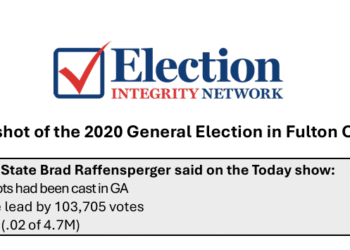Sam Faddis has unleashed a scathing critique of the persistent narrative alleging Russian interference in U.S. politics, labeling it a dangerous deception designed to mislead and manipulate public opinion. In a recent discussion, Faddis dismissed the notion that Russia has been covertly influencing American political outcomes as part of a broader "Russian collusion hoax.”
Faddis argues that the current obsession with Russia’s alleged meddling is a repetition of a false narrative akin to the "Russian disinformation” claims surrounding Hunter Biden’s laptop. "We saw all this when Hunter Biden’s laptop was branded as a Russian disinformation plot,” he recalls. "I saw the contents of that laptop within days and can say with certainty that it was not fabricated. The entire narrative was a lie.” He suggests that this cycle of disinformation is being perpetuated to distract from more significant issues.
Central to Faddis’s critique is the notion that the narrative of Russian interference is a tactic to undermine Donald Trump and suppress dissent. He contends that the claim of Russian backing for Trump is not only implausible but strategically used to discredit him and silence critics. "The last guy Vladimir Putin wants to deal with in the White House is Donald Trump,” Faddis asserts. "This obsession with Trump being a Russian pawn is insane and makes no sense.”
Furthermore, Faddis believes that focusing on Russian interference serves a dual purpose: it distracts from other critical issues and suppresses valid questions about election integrity. He describes how accusations of Russian interference are employed to shut down discussions about electoral processes, branding those who raise concerns as unwitting agents of Russian influence. "If you raise any questions about the integrity of the system…you’re doing Putin’s bidding,” Faddis says, emphasizing how this tactic is used to dismiss legitimate scrutiny and stifle democratic debate.
Faddis also criticizes the broader approach of using foreign interference narratives to control the public discourse. He points to a pattern of leveraging these claims to serve specific political agendas, suggesting that the narrative is less about genuine security concerns and more about manipulating perceptions. "There’s a whole cottage industry of entities that pretend to stand for truth and justice while pushing false narratives,” he argues. "The goal is to keep people silent and compliant.”
The former CIA officer underscores the situation’s absurdity by comparing the current environment to past falsehoods, asserting that the same tactics are being reused. He laments how easily the public is swayed by these fabricated stories, noting that similar falsehoods have previously been used to undermine political figures and policies.
In conclusion, Sam Faddis’s critique of the Russian collusion narrative highlights a broader issue of disinformation and manipulation in American politics. By exposing what he views as a dangerous deception, Faddis urges a more critical examination of the motives behind these narratives and their impact on public discourse. His message is clear: the obsession with Russian interference is misleading and harmful to genuine democratic engagement.
For more from Sam Faddis, watch the full segment with his comments on Saturday WarRoom:
Walz’s Collusion With The CCP Is Much Bigger Threat To National Security Than Putin Planting Stories





![Bannon’s WarRoom, Show Clip Roundup 9/7/2024 [SATURDAY]](https://warroom.org/wp-content/uploads/2024/09/gettyimages-890643274-1554136852-75x75.jpg)